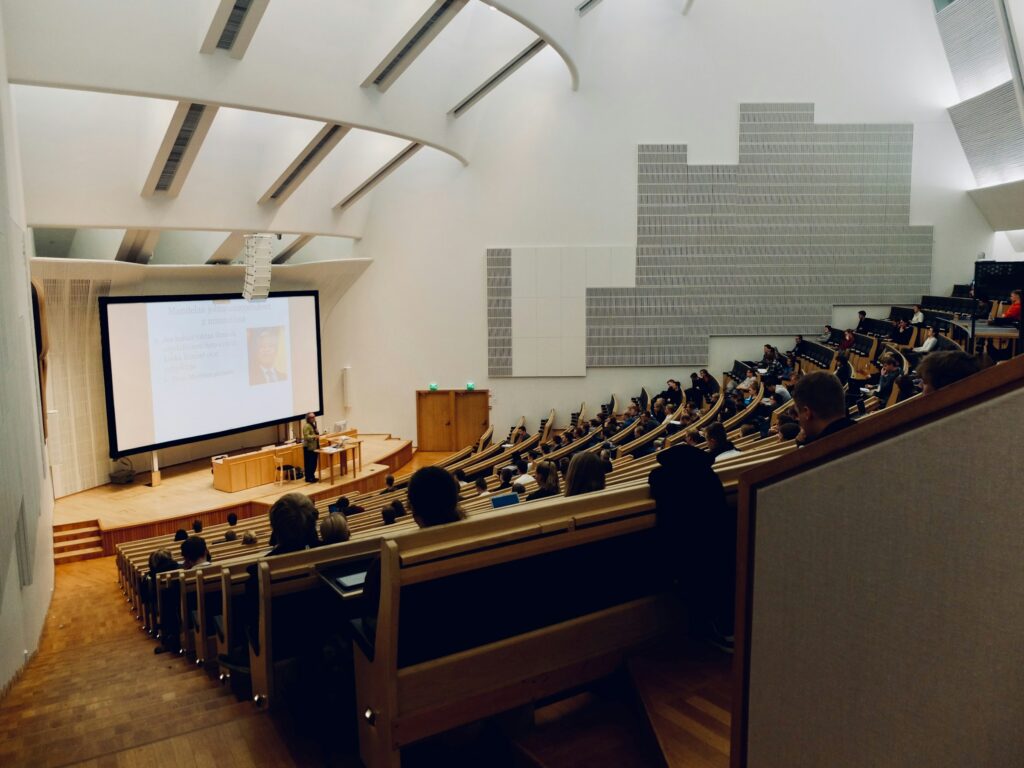The Technical University of Munich (TUM) receives a substantial grant from Google for a pioneering training program in the field of Cybersecurity. Google.org, the non-profit arm of the tech giant, is providing up to one million US dollars to strengthen IT security education at TUM.
This support is part of a global initiative by Google with a total volume of 15 million US dollars. TU Munich is the only German university to benefit from this funding. The program aims to provide more than 200 students with practical experience in the Information Security to make this possible.
The need for such initiatives is underlined by alarming figures: 81% of German companies were victims of data theft, IT device theft or industrial espionage in 2024. A further 10 percent suspect they have also been affected. The program at TUM aims to help protect over 250 vulnerable companies and non-profit organizations from cyber threats.
Important findings
- Google.org supports the TU Munich with up to 1 million US dollars
- Over 200 students receive practical training in Cybersecurity
- 81% of German companies were affected by cyberattacks in 2024
- The program is part of a 15 million dollar initiative by Google
- The aim is to protect over 250 endangered organizations
Introduction to the cooperation between Google and TU Munich
The Technical University of Munich (TUM) and Google have entered into a groundbreaking collaboration in the field of Cybersecurity has been launched. This initiative aims to strengthen training and research in this important field and meet the growing demand for specialists.
Background to the collaboration
Google was appointed TUM's first non-European Excellence Partner in 2018. Since then, the partnership has continued to develop. Google has been supporting TUM initiatives to promote women in STEM subjects since 2022. In February 2023, TUM launched the TUM Innovation Network for Cybersecurity with an unrestricted donation from Google.
Aims of the initiative
The cooperation between Google and TUM pursues several important goals:
- Development of seven research projects led by TUM professors with the support of Google experts
- Creation of seven new doctoral positions
- Research into various aspects of artificial intelligence, cyber security and data protection
- Investigating the risks of AI systems for general purposes in Europe
- Analysis of side-channel leaks in post-quantum cryptography implementations
This collaboration underlines the importance of cyber security and Privacy in today's digitalized world. By combining academic expertise and practical experience from industry, an innovative approach is being created to meet the challenges of the digital age. digital security to cope with.
| Aspect | Details |
|---|---|
| Financial support | 1.2 million US dollars from Google |
| Main research areas | AI, cyber security, Privacy |
| New positions | 7 doctoral positions |
| Google Safety Engineering Center | Over 300 engineers from 40+ nations |
Importance of IT security for companies
The relevance of IT security for companies is constantly growing. In an increasingly digitalized world, companies are faced with the challenge of protecting their data and systems from cyber attacks. Cryptography and Network security play a central role in this.
Current threats in the cyber world
The dangers in the digital space are increasing. A study by Bitkom reveals alarming figures: in 2024, 81% of German companies were affected by data theft, industrial espionage or sabotage. A further 10 percent suspect a breach. These statistics underline the urgency of effective protective measures.
Relevance for companies of all sizes
IT security is not only important for large corporations. Small and medium-sized companies are also at risk. The use of modern Cryptography-process and more robust Network security is essential for all companies. These technologies protect sensitive data and ensure business continuity.
| Threat | Companies affected | Presumed concern |
|---|---|---|
| Data theft, espionage, sabotage | 81% | 10% |
In view of these figures, it is encouraging that initiatives such as the cooperation between Google and the Technical University of Munich are promoting education in the field of cyber security. With over 200 participants and funding of up to one million dollars, the program is making an important contribution to strengthening IT security in Germany.
The role of the TU Munich in education
The Technical University of Munich plays a key role in the training of IT security experts. With innovative courses, it prepares students for the challenges in the Security management before.
Extensive range of courses
TUM offers a wide range of courses in the field of IT security. Over 200 students take part in the cybersecurity program. The curriculum combines theory with practice and includes project weeks on real-life challenges.
Practical training
Students work on specific tasks such as secure login methods and electronic signatures. They learn Ethics in IT security and apply their knowledge directly. Over 250 companies benefit from this program.
| Aspect | Details |
|---|---|
| Number of participants | Over 200 students |
| Promotion by Google.org | Up to 1 million dollars |
| Supported companies | Over 250 |
| Focus | Practical projects, eIDAS technologies |
"With the cybersecurity program, we are creating an environment in which students can apply theoretical knowledge, work in interdisciplinary teams and address the practical needs of industry," explains Georg Carle, Professor at TUM.
TU Munich is the only German university in this funding program. It makes an important contribution to the training of urgently needed specialists in the field of cyber security.
Google's commitment to education
Google shows a strong commitment to education, especially in the promotion of IT skills. The tech giant is investing heavily in Germany's digital future. By 2030 plans Google to invest one billion euros in digital infrastructure. This investment underlines the importance of IT security and Risk management in the modern economy.
Programs to promote IT skills
Google.org, Google's non-profit organization, is supporting the education program at TU Munich with up to one million dollars. This program is part of a global initiative with a total volume of 15 million dollars that supports more than 20 universities worldwide. The TU Munich is the only German university to benefit from this funding pot.
- Over 200 students can apply their skills in real-life scenarios
- Objective: To support over 250 companies and non-profit organizations in Germany
- Focus on organizations that are considered particularly vulnerable to cyberattacks

Support from Google experts
Google experts contribute their knowledge and experience in areas such as Risk management and current technology trends. This direct cooperation with industry offers students realistic insights into the working world of IT security. In view of the fact that 81 percent of German companies are affected by cyber attacks, this expertise is invaluable.
"Investing in AI infrastructure requires significant resources to create digital fast lanes, including cloud, connectivity and computing power."
Through this initiative, Google is not only contributing to training, but also strengthening Germany's competitiveness in the field of IT security and risk management.
Expansion of study options
The cooperation between Google and the Technical University of Munich opens up new horizons for students in the field of IT security. The program, which starts this spring, offers innovative degree courses and certificates that are specifically tailored to the requirements of modern cyber security.
New degree programs and certificates
The Technical University of Munich is expanding its range of courses to include pioneering study programs in IT security. These courses integrate the latest technologies and methods to optimally prepare students for the challenges of the digital world. Certificate programs also enable flexible further education for working professionals.
Promotion of internships and projects
One focus of the cooperation is on the practical application of what has been learned. Students are given the opportunity to put their skills to the test in real-life situations. This takes the form of funded internships at leading companies and practical projects supervised by Google experts.
| Offer | Description | Duration |
|---|---|---|
| Master's program in IT Security | In-depth study of cyber security | 4 semester |
| Certificate Network security | Specialization for professionals | 6 months |
| Google internship | Practical experience in the company | 3 months |
These expanded study opportunities at the Technical University of Munich in cooperation with Google strengthen the university's position as a leading institution in IT security education. The combination of theoretical knowledge and practical experience optimally prepares students for the demands of the job market.
Practical applications in studies
The Technical University of Munich offers students practical training in the field of Information Security. The program combines theoretical knowledge with real projects and promotes cooperation with industry.
Case studies and real projects
Students work on 25 lectures of 1.5 hours each. They cover 10 important IT security topics, from Malware until Privacy. A practical course of 1 SWS supplements the theory. Previous knowledge of Linux or programming is not necessary.

The Bachelor of Science includes modules such as Discrete Structures and Introduction to Computer Science. Students collect credit points over six semesters, including a Bachelor's thesis and an internship. Elective modules such as Cloud Computing and Machine Learning round off the program.
Industry partner
The TU Munich cooperates with over 250 local companies and organizations. These partnerships enable students to work on current IT security problems. They support particularly vulnerable companies and non-profit organizations in their defense against cyber attacks.
Thanks to this practical experience, graduates are ideally equipped for the job market. They can apply their knowledge directly in practice and contribute to improving the Information Security in companies.
The future of IT security
The world of cyber security is on the brink of significant change. New technologies such as artificial intelligence and quantum computing bring both opportunities and challenges. These developments require continuous adaptation of security strategies and measures.
Trends and developments in the
Several important trends are emerging in the area of cyber security:
- Use of AI to detect and defend against cyberattacks
- Increasing importance of data protection in networked systems
- Development of quantum-safe encryption methods
- Focus on security in the Internet of Things (IoT)
Growing importance for society
IT security is becoming increasingly relevant to society. The protection of critical infrastructures, the security of personal data and the maintenance of the digital sovereignty are the focus. The cooperation between the Technical University of Munich and Google aims to train specialists who can master these challenges.
"We are facing a shortage of cybersecurity professionals at a time when new technologies like AI present both opportunities and threats to the field," says Dr. Wieland Holfelder, Vice President of Engineering at Google.
To meet these challenges, the Technical University of Munich is planning to train over 200 students in cybersecurity from spring 2025. The curriculum combines theoretical knowledge with practical applications and prepares students for the complex tasks of the future.
| Aspect | Significance for the future |
|---|---|
| AI in cyber security | Automated threat detection |
| Privacy | Protection of personal information in networked systems |
| Quantum-safe encryption | Security against future quantum computer attacks |
| IoT security | Protection of billions of networked devices |
Influence of digitalization on IT security
Digitalization brings new challenges for IT security. According to the Federal Office for Information Security (BSI), phishing and data leaks are the biggest digital threats to consumers. The Technical University of Munich (TUM) is responding to this with an innovative cyber security program that is being funded by Google.org with up to one million US dollars.
Challenges posed by new technologies
The rapid development of new technologies such as artificial intelligence creates both opportunities and risks in network security. The BSI has published its recommendations for post-quantumCryptography updated to counter the growing threat posed by quantum computers. These developments underline the need for a sound education in cryptography and related fields.
Opportunities through innovative solutions
TUM uses practical projects to prepare students for real-life challenges. One focus is on technologies for electronic identification, authentication and trust services (eIDAS). This training is crucial, as the damage caused by cyber attacks in Germany is estimated at around 223.5 billion euros. By combining theoretical knowledge and practical application, TUM is preparing the next generation of IT security experts for the complex demands of the digital future.
